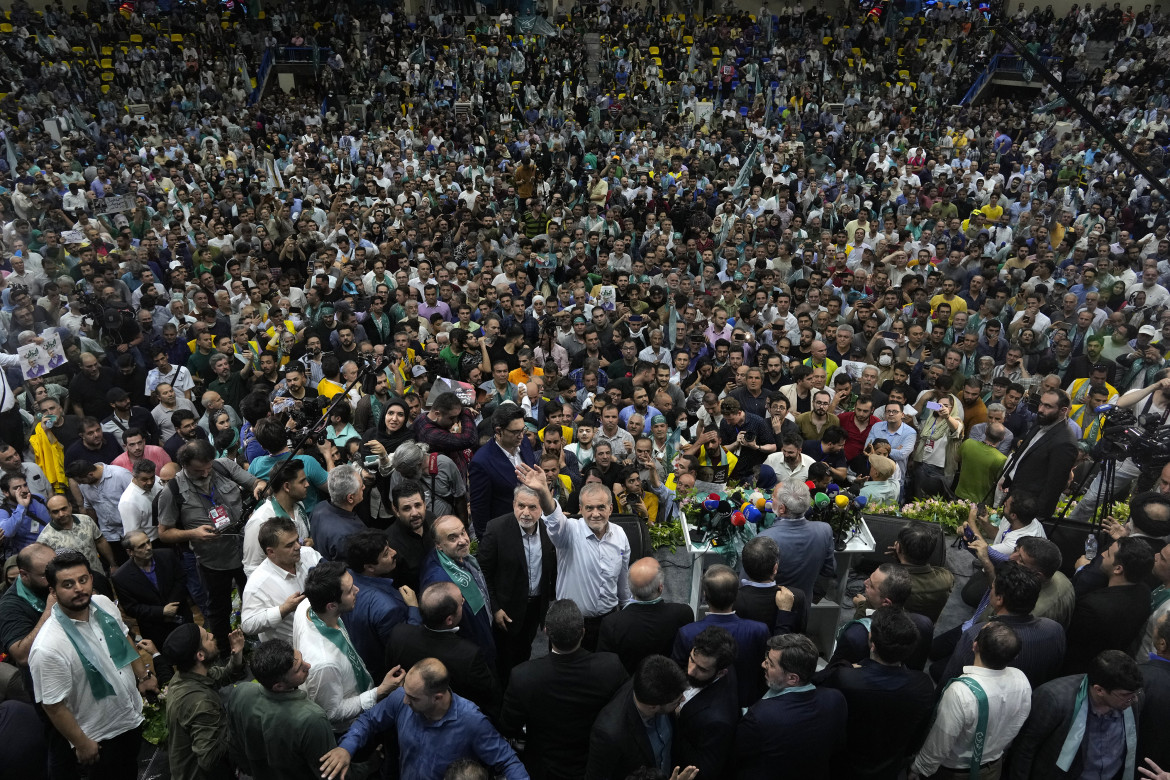Analysis
Pezeshkian promises a new direction for Iran, but can he make that promise?
Pezeshkian, who beat the ultraconservative Said Jalili, has been brought to the presidency to give a different message, that of greater tolerance.

In Iran, the most inscrutable presidential candidate won, as was predicted by informal polling by the Revolutionary Guard — that is, those who hold power together with the religious leadership and Supreme Leader Ali Khamenei. The new president belongs to the reformist wing, which had been ousted from the halls of power for years – and which, one might recall, never actually managed to reform anything when it held the presidency with Khatami and then with the more moderate Rohani.
Will newly elected President Massoud Pezeshkian manage to do that? We are more than a little doubtful; and then, one has to ask why a regime that is increasingly militarized and engaged on several different war fronts in the Middle East and against Israel has now decided to “resurrect” the reformists.
The underlying reason is that the popular legitimacy of the Islamic Republic founded in 1979 with Khomeini's revolution is in question, not only because of heavy disillusionment about the Ayatollahs' system and the economic crisis but because these elections came after months of protests by the population to gain more respect for their rights, demonstrations that were harshly suppressed by the security forces.
The “Women, Life, Freedom” movement was sparked in 2022 by the death of young Mahsa Amini, who died while in the custody of the police for not wearing her headscarf in the manner considered proper according to the rules of the state guardians of morality.
Pezeshkian, who beat the ultraconservative Said Jalili, has been brought to the presidency to give a different message, that of greater tolerance: he has called upon to put a more acceptable face on the regime before a largely disillusioned and largely hostile public.
A surgeon by profession, with an Azerbaijani father and a Kurdish mother, a former Minister of Health, but a second-tier figure with no impressive revolutionary credentials, Pezeshkian would have never been allowed to enter the presidential race without the approval of the Guardian Council, which had already eliminated much more well-known figures. He was handpicked from above and then dropped into the political arena.
There are two seemingly-contradictory takeaways.
The first is that the ultra-conservative religious and militarist camp is still unified and secure enough in holding power to the point that it can afford to present a candidate from the internal “opposition” and anoint him as the winner.
But at the same time, the choice of Pezeshkian reveals the key issue at hand: the deep crisis of legitimacy the Islamic Republic is experiencing, as evidenced by the voter turnout that remains very low compared to the past. The new president represents a kind of regime recovery operation in a country experiencing a deep rift between those at the top and the people.
It is largely a cosmetic operation, because the new president has limited power: he is the head of government, but not the effective ruler in a system monopolized by the ultraconservatives who dominate all the main institutions, from the political institutions to the judiciary, religious and military leadership.
Pezeshkian will have great difficulty in governing as he promises he will, since he has limited political and personal power and will still have to deal with a parliament, the Majilis, made up largely of ultraconservatives and where the reformists are in a clear minority. They will be able to reject his ministers and bills at any time.
In short, he is a president under guardianship, watched from above. But then, why has he been pushed to the forefront and all the way to victory? Because this is one of the final cards being played by the Islamic Republic at a time of both delegitimization and also economic and social crisis.
In order to govern, Pezeshkian will also have to take unpopular measures such as cutting subsidies and raising energy prices: for that purpose, it’s better to put a reformist’s face on everything. “All of us are the people of this country, we will need everyone's help for Iran's progress,” was one of his first statements, words that presage a kind of appeal for solidarity that is usually only employed in difficult times.
How much will Pezeshkian's rise affect foreign policy? This is an essential question, because peace and war in the Middle East must go through Tehran, the hub of Shiite Islam: everywhere from Hezbollah-ruled Lebanon to Hamas-ruled Palestine, Iraq, Syria and Yemen's Houthis.
The new president has said he wants to extend “the hand of friendship to all,” but nobody believes he is the one who can decide on that – and he doesn’t believe it either. However, Pezeshkian does represent a sort of message from the Islamic Republic, which has always been at war or at friction with the West, and which risks becoming entangled in the axis between Moscow and Beijing, vital to it at this point but not exactly what the Ayatollahs' strategists want.
It is a time for becoming more open towards the West, at least formally – if not out of conviction, out of necessity, given Trump's possible return to the White House. As Iranian philosopher Dariush Shayegan – who inspired the Dialogue of Civilizations initiative – used to say, Iran's history is like a pendulum that perpetually swings between East and West. And, perhaps, the pendulum will swing once more.
Originally published at https://ilmanifesto.it/a-tehran-un-presidente-sotto-stretta-sorveglianza on 2024-07-07
